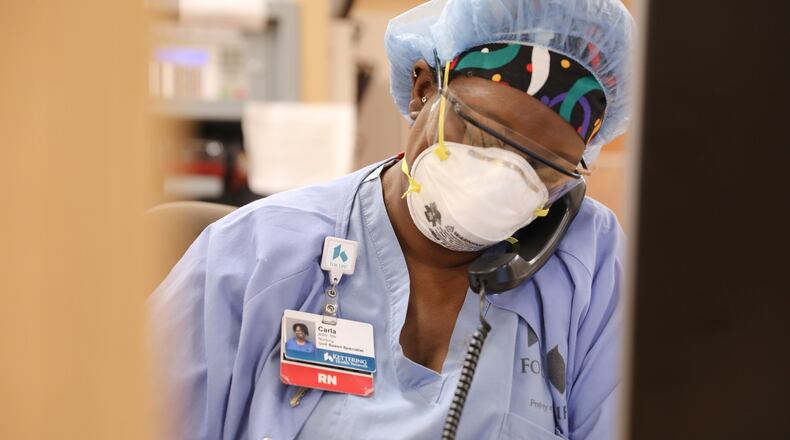The reopening of Ohio does not mean we’ve beaten COVID-19. What we have done is prepare our community to manage this virus as safely as possible, but we still need each of you to help prevent further spread in our communities.
As a partnership of hospitals and health care providers, we have been successful in reducing the virus’ impact to our hospitals and ensuring their ability to care for you during your time of need.
In this region, we strengthened our existing plans to safeguard our hospitals’ capacity. These plans make certain that hospitals can manage a surge of COVID-19 patients safely, within the walls of their facilities, while still caring for those patients who need us after a car accident, in the midst of a heart attack or stroke, or as they prepare for the birth of their first child.
Our hospitals implemented robust, split-flow triage systems to separate people coming into the emergency departments from those who are experiencing COVID-19 symptoms. The vigorous infection control and prevention practices at all of our region’s hospitals have only increased as we learn to live with COVID-19. Since many of these changes aren’t visible to the public, we know it is hard to understand that it is safe to go to the hospital in an emergency.
Our hospitals are safe. Delaying emergency care can be dangerous to your health. Doing so could lead to a need for more intensive care at the hospital over a longer period, resulting in a more complicated recovery. Please do not delay care in an emergency because you are fearful of COVID-19.
Things may look or feel a little different at health care facilities, but these new precautions will protect you, your loved ones and fellow patients. When you enter a hospital facility, urgent care, or physician practice, you should expect to answer a series of questions, have your temperature taken with a non-contact thermometer and wear a mask. Chairs and space in waiting rooms will be physically distanced. If waiting room space is unavailable, you may be asked to wait in your car until your provider is ready to see you.
Now is not the time to forgo appointments that are meant to help you manage your health or protect the health of your family members. Keep your cardiologist appointment so you can be certain your heart is as healthy as possible. Take your newborn to their first pediatric visit to ensure they are healthy and progressing. Don’t skip your mammogram or prostate exam. Older children still need well-child visits and vaccinations on schedule.
>> Robinson: It’s not always easy, but you have to try
And remember, COVID-19 is still here in this community. Please continue to do your part. Wash your hands for 20 seconds with soap and water. Keep a physical distance of six feet between yourself and those individuals that do not live in your immediate household. Wear a mask or face covering that covers your nose and mouth when you are in public settings.
Your vigilance is needed to help us protect one another.
Sarah Hackenbracht is the President and CEO of the Greater Dayton Area Hospital Association.
About the Author

